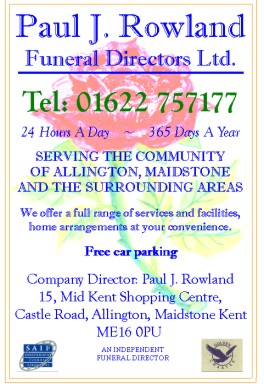| Hans Kung, the great German theologian has written
much about the state of life on this earth and the place
of Religion in it. His great work on the Religious
Situation of our time has as its key, "No peace
among the nations without peace among the religions. No
peace among the religions without dialogue between the
religions. No dialogue between the religions without
investigation of the foundation of the religions."
Alas there are not only destructive divisions between
different forms of Christianity but within the Church of
England itself. These can be seen in different
ways; and almost inevitable they are described in more
black and white terms than is just.
One approach is this: what matters most is our
relationship as a Christian community with God. It is
through our corporate worship and personal prayer that we
meet God. He calls us and gives us grace in ways we
cannot determine in advance. He comes in unexpected ways,
at unexpected times and with unexpected good news. This
God comes to Abraham and called him to leave home and
settle in Canaan. God calls Moses to lead his people out
of slavery in Egypt. God calls St Paul to preach the
gospel to the gentiles. The totality of Christian
experience emphasises certain key values: love, faith,
hope, generosity, graciousness, seeking to help to embody
the kingdom of God so that it comes on earth as in heaven.
What is important is to worship well and to serve God and
his people as he calls us; to love God and our
neighbour. While we can do this in well trodden paths; we
are to be alert for his new ways; for God is always
renewing his church and his world.
Another approach emphasises teaching and obedience. The
faith is expressed in authoritative statements largely
derived from particular readings of the bible. Those who
do not accept this teaching tend to be declared in error.
There can often be an authoritarian atmosphere
established by those who consider themselves to be church
leaders. This can be a long way from that quiet waiting
on God which is such a sign of true dependence upon him
alone. There can be questions of who holds authority in
this approach. Thus for the Roman Catholic Church it is
the Pope; for the Anglican Diocese of Sydney, Australia
it is the Diocesan Synod; for a Baptist Church it is the
local church meeting. Some members of the General Synod
of the Church of England are seeking a body to determine
which beliefs are acceptable.
This approach is not one that historically has commended
itself to the Church of England. There it is the
Liturgy that has been authoritatively fixed and everyone
is welcome who can in good conscience participate in the
liturgy excluding only those the bishop considers,
'notorious evil livers'. Experience has shown that this
has worked well. Every now and then new ideas have
emerged, some have been shown to be fruitful and widely
adopted; others been shown not to be fruitful and have
died a natural death. I do believe that energy is better
spent on seeking God as he is, as he comes personally to
us; seeking to love God and our neighbour.
How do we live together with such different approaches
and yet others with different ways still of being
Christian? This is not easy and yet it is so important.
Conflict within the Christian community is so very
destructive of witnessing to the good news. It is
better to be positive about our own approach; yet we
might be called to gently, and courteously point out how
we consider some approach to be destructive to human
flourishing. In the end, better, more powerful than
our words, is our example. We pray to God, we examine our
lives in his light as best we can as we participate in
his sacraments and seek to serve him amidst those with
whom we have to do. May God guide us all as we seek him
in truth and try to love God and our neighbour better.
Christopher Morgan - Jones

Go to Next Page
Go to Previous Page
Go to Index Page
Go to Home Page
|
